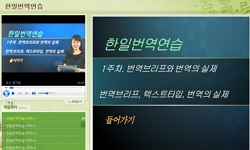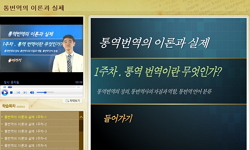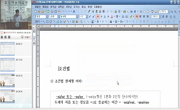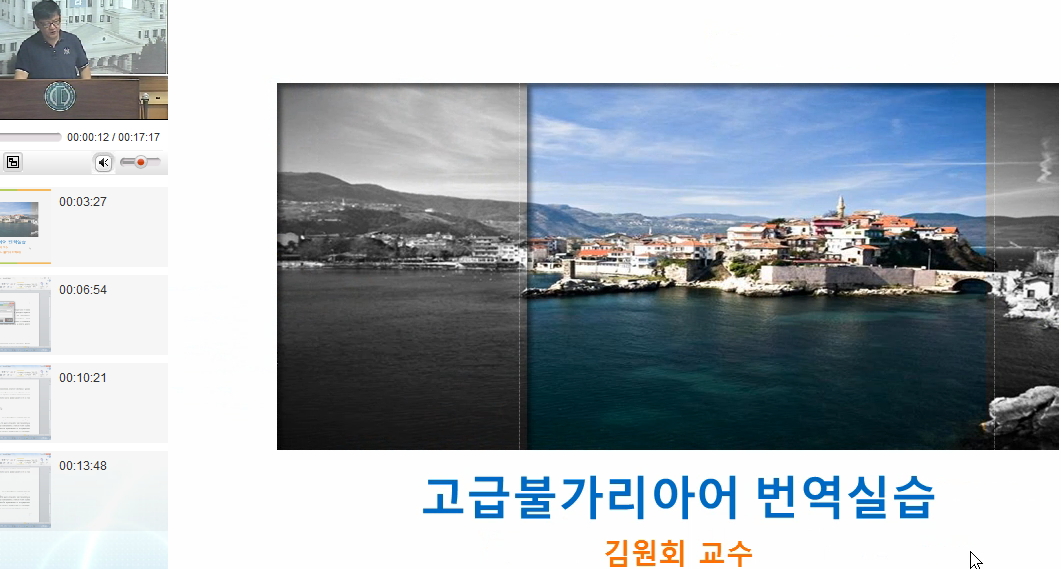이 논문은 서양고대 역사문헌의 번역 문제를 헤로도토스의 『역사』 번역을 중심으로 논의하고자 한다. 먼저 2장에서는 『역사』 번역의 방법론에 대해 논의한다. 번역의 방법론은 대개 번...
http://chineseinput.net/에서 pinyin(병음)방식으로 중국어를 변환할 수 있습니다.
변환된 중국어를 복사하여 사용하시면 됩니다.
- 中文 을 입력하시려면 zhongwen을 입력하시고 space를누르시면됩니다.
- 北京 을 입력하시려면 beijing을 입력하시고 space를 누르시면 됩니다.

두 시공간을 잇는 작업, 헤로도토스 『역사』의 번역 = Toward Connecting Two Worlds: A Translation of Herodotus’ Historiai
한글로보기https://www.riss.kr/link?id=A106410961
- 저자
- 발행기관
- 학술지명
- 권호사항
-
발행연도
2018
-
작성언어
-
-
주제어
번역 ; translation ; 이국화 ; foreignization ; 자국화 ; domestication ; 이국적 요소 ; foreign element ; 헤로도토스 ; Herodotus ; 『역사』 ; Historiai
-
등재정보
KCI등재
-
자료형태
학술저널
-
수록면
177-214(38쪽)
-
KCI 피인용횟수
1
- DOI식별코드
- 제공처
- 소장기관
-
0
상세조회 -
0
다운로드
부가정보
국문 초록 (Abstract)
이 논문은 서양고대 역사문헌의 번역 문제를 헤로도토스의 『역사』 번역을 중심으로 논의하고자 한다. 먼저 2장에서는 『역사』 번역의 방법론에 대해 논의한다. 번역의 방법론은 대개 번역의 목적, 원천 텍스트의 유형과 성격에 따라 달라진다. 그에 따라 『역사』 번역에도 다양한 방법론이 적용될 수 있지만, 이 논문에서는 『역사』를 전문 학술서와 역사고전으로 읽는 독자들을 위해 원문 위주의 학술번역이 요구된다는 점, 텍스트 유형에 따른 방법론으로 원천텍스트의 내용과 형식에 충실한 번역이 필요하다는 점, 그리고 역사서로서의 성격에 부합되도록 저자와 원천 텍스트 위주의 번역이 필요하다는 점이 강조된다. 이런 번역방식은 넓게 보면, 베누티가 제시한 이국화 번역에 해당한다. 이국화 번역은 원천 텍스트 특유의 이국적인 언어적·문화적 요소를 수용하는 입장이므로, 학술번역과 역사서 번역에 적합한 방법이라 할 수 있다.
3장에서는 그런 이국화 번역방식이 『역사』 번역과정에서 어떻게 적용되는지를 검토하고자 한다. 여기서는 『역사』에 담긴 시간·공간적인 이국적 요소, 저자의 이국적 요소, 텍스트의 이국적 요소가 여러 번역본에서 어떻게 다루어지는지를 점검한다. 시간·공간적인 이국적 요소로는 『역사』에 사용된 특수한 명칭과 개념 용어를 드는데, 당시의 고유명사, 의복 및 악기에 관한 명칭, 에트노스와 폴리스 같은 개념 용어가 대표적인 예라 할 수 있다. 이런 용어들은 시대착오적인 번역 용어로 대체하기보다 헤로도토스가 표현한 말을 그대로 전달할 필요가 있다.
저자의 이국적 요소는 저자 특유의 개성과 습관, 관점, 가치관 등에 관계된 것인데, 헤로도토스의 그리스 중심적 관점과 다문화 인식을 예로 들 수 있다. 그의 그리스 중심적 관점은 그리스인 위주의 방향 표현, 그리스식의 이방인 서술에서 잘 나타난다. 한편 헤로도토스의 개방적인 다문화 인식은 바르바로이와 그들의 문물을 존중하는 서술에서 잘 드러난다. 『역사』 번역에서는 헤로도토스의 이런 양면적인 관점이 반영된 독특한 표현들을 원문 그대로 충실히 전할 필요가 있다.
헤로도토스 텍스트의 이국적 요소는 그의 텍스트 구문상 독특한 관행을 말하는데, 자타 견해가 분명히 구분된다는 점, 동일한 술어가 반복 표현된다는 점, 예고적 문장이 자주 사용된다는 점, γaρ 구문을 자주 사용된다는 점을 들 수 있다. 이 점들은 헤로도토스 서술의 기본 방침과 통일적 연계성을 잘 보여주기 때문에, 축약이나 누락되지 않고 원문 그대로 전해질 필요가 있다. 이상의 이국적 요소들은 『역사』의 이국화 번역을 이루기 위한 구체적인 지향점들이라 할 수 있다.
다국어 초록 (Multilingual Abstract)
This article aims to discuss the problems of translating ancient Western historical writings, focusing on Herodotus’ Historiai. In chapter 2, it deals with the translation method of Herodotus’ Historiai. Herodotus’ Historiai needs to be faithful...
This article aims to discuss the problems of translating ancient Western historical writings, focusing on Herodotus’ Historiai. In chapter 2, it deals with the translation method of Herodotus’ Historiai. Herodotus’ Historiai needs to be faithfully translated as an academic book for readers who are concerned with ancient Western history. The text type and character of Historiai as a historical source demand source text oriented translation. These translation methods for Historiai almost accord with the concept of foreignization proposed by L. Venuti, one of the most influential theorists in translation studies. I think the concept of foreignization could be a most suitable translation theory for the academic and faithful translation of some historical writings such as Herodotus’ Historiai.
In chapter 3, this article intends to examine how the foreignizing translation could be applied in translating Herodotus’ Historiai. Here the source-text foreign elements of Herodotus’ Historiai are divided into three categories, that is, the foreign elements in Herodotus’ world, those in Herodotus himself, and those in Herodotus’ text. Names(such as proper names, names of musical instruments) and conceptions(such as ethnos, polis) used by Herodotus in his Historiai belong to the foreign elements in Herodotus’ world. These names and conceptions should be translated faithfully to Herodotus’ own words in order to retain the foreign elements in Herodotus’ world.
The foreign elements in Herodotus himself include some ideas, habits, and characters of Herodotus. In this article, Herodotus’ two opposing viewpoints, i.e. his Greek-centric mindset and multicultural awareness are treated as foreign elements in Herodotus himself. Some words and sentences showing those viewpoints also should be retained in translating the source text. The foreign elements in Herodotus’ text mean some peculiarities occurring frequently in his text. These are the division between the opinions of Herodotus’ and any other’s, use of introductory participles that repeat the main verb of the previous sentence, use of prospective sentences accompanied by forward-looking demonstratives(such as oδε, wδε, τοιoσδε), and use of γaρ sentences introducing the reason or cause of what precedes. These peculiarities are important for preserving the characteristic form of Herodotus’ text, and therefore should be retained unless they severely impair readability in the target language text.
참고문헌 (Reference)
1 김봉철, "헤로도토스의 <역사>에 나타난 다문화 인식" 한국서양사학회 (135) : 133-167, 2017
2 심경호, "한문고전번역에서의 학술 번역의 개념과 그 역할" 4 : 129-154, 2008
3 장유승, "학술번역이란 무엇인가" 3 : 165-190, 2012
4 서울대학교 역사연구소, "역사용어사전" 서울대학교출판문화원 2015
5 헤로도토스, "역사" 길 2016
6 헤로도토스, "역사" 숲 2009
7 J. Munday, "번역학입문" 한국외국어대출판부 2006
8 전성기, "번역인문학과 번역비평" 고려대출판부 2008
9 안인경, "번역 가독성 개념에 대하여" 언어과학회 (74) : 147-168, 2015
10 R. B. Strassler, "The Landmark Herodotus" 2007
1 김봉철, "헤로도토스의 <역사>에 나타난 다문화 인식" 한국서양사학회 (135) : 133-167, 2017
2 심경호, "한문고전번역에서의 학술 번역의 개념과 그 역할" 4 : 129-154, 2008
3 장유승, "학술번역이란 무엇인가" 3 : 165-190, 2012
4 서울대학교 역사연구소, "역사용어사전" 서울대학교출판문화원 2015
5 헤로도토스, "역사" 길 2016
6 헤로도토스, "역사" 숲 2009
7 J. Munday, "번역학입문" 한국외국어대출판부 2006
8 전성기, "번역인문학과 번역비평" 고려대출판부 2008
9 안인경, "번역 가독성 개념에 대하여" 언어과학회 (74) : 147-168, 2015
10 R. B. Strassler, "The Landmark Herodotus" 2007
11 D. Grene, "The History. Herodotus" The Univ. of Chicago Press 1987
12 W. A. Johnson, "Oral Performance and the Composition of Herodotus’ Histories" 35 (35): 229-254, 1994
13 R. V. Munson, "Herodotus’ Use of Prospective Sentences and the Story of Rhampsinitus and the Thief in the Histories" 114 (114): 27-44, 1993
14 A. de Selincourt, "Herodotus. The Histories" 1954
15 R. Waterfield, "Herodotus. The Histories" Oxford Univ. Press 1998
16 A. D. Godley, "Herodotus, 4 vols" Harvard Univ. Press 1971
17 M. L. Lang, "Herodotean Narrative and Discourse" Harvard Univ. Press 1984
18 H. R. Immerwahr, "Form and Thought in Herodotus" 1966
19 T. B. L. Webster, "A Study of Greek Sentence Construction Author(s)" 62 (62): 385-415, 1941
20 J. E. Powell, "A Lexicon to Herodotus" 1938
21 D. Asheri, "A Commentary on Herodotus Books I-IV" 2007
동일학술지(권/호) 다른 논문
-
The Wisdom Motif of ‘Plucking and Destroying’, and ‘Planting and Building’, in the Book of Jeremiah
- 한국서양고대역사문화학회
- 유윤종
- 2018
- KCI등재
-
Religious Thoughts in the Days of Nabonidus, king of Babylon
- 한국서양고대역사문화학회
- 윤성덕
- 2018
- KCI등재
-
- 한국서양고대역사문화학회
- 김상엽
- 2018
- KCI등재
-
- 한국서양고대역사문화학회
- 안희돈
- 2018
- KCI등재
분석정보
인용정보 인용지수 설명보기
학술지 이력
| 연월일 | 이력구분 | 이력상세 | 등재구분 |
|---|---|---|---|
| 2027 | 평가예정 | 재인증평가 신청대상 (재인증) | |
| 2021-01-01 | 평가 | 등재학술지 유지 (재인증) |  |
| 2018-01-01 | 평가 | 등재학술지 유지 (등재유지) |  |
| 2015-01-01 | 평가 | 등재학술지 유지 (등재유지) |  |
| 2011-01-01 | 평가 | 등재학술지 유지 (등재유지) |  |
| 2008-01-01 | 평가 | 등재학술지 선정 (등재후보2차) |  |
| 2007-01-01 | 평가 | 등재후보 1차 PASS (등재후보1차) |  |
| 2005-06-29 | 학회명변경 | 영문명 : The Korean Association For The Western Ancient History -> THE KOREAN ASSOCIATION FOR THE WESTERN ANCIENT HISTORY AND CULTURE |  |
| 2005-01-01 | 평가 | 등재후보학술지 선정 (신규평가) |  |
학술지 인용정보
| 기준연도 | WOS-KCI 통합IF(2년) | KCIF(2년) | KCIF(3년) |
|---|---|---|---|
| 2016 | 0.27 | 0.27 | 0.19 |
| KCIF(4년) | KCIF(5년) | 중심성지수(3년) | 즉시성지수 |
| 0.2 | 0.2 | 0.655 | 0.09 |




 KCI
KCI KISS
KISS







